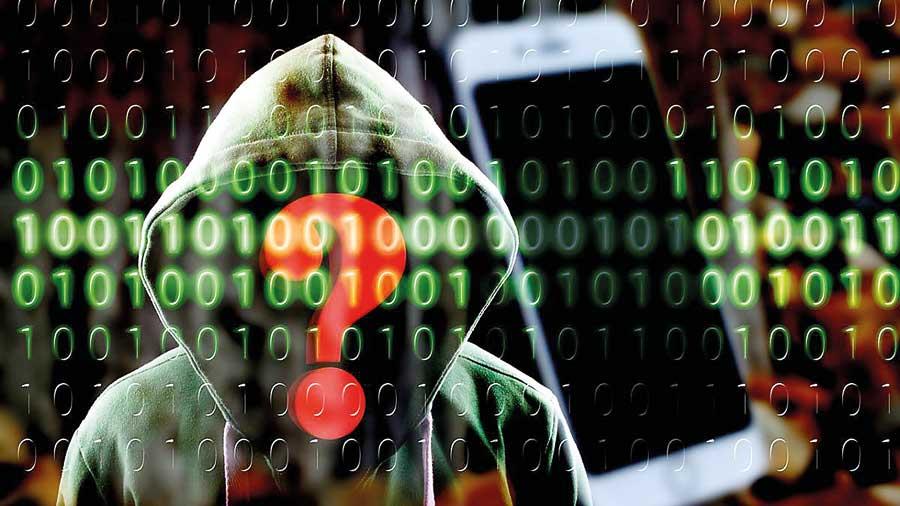28 Jul 2021 - {{hitsCtrl.values.hits}}

About ten days back, I started receiving a flurry of messages from colleagues in Sri Lanka. I am generally not in many of the messaging groups and since taking up my current research post, I have had to limit my ongoing work on Sri Lanka.
not in many of the messaging groups and since taking up my current research post, I have had to limit my ongoing work on Sri Lanka.
A good friend once said, “You may leave Sri Lanka, but Sri Lanka never leaves you,” just before decamping for post graduate work.
The messages were on one thing focusing on three words the Pegasus Project. An international consortium of newspapers and digital rights bodies including the France-based Forbidden Stories, the Guardian and India’s the Wire had broken a story on the possible hacking of thousands of phones of journalists, national leaders, human rights activists and others using high-end spyware.
"An unprecedented leak of more than 50,000 phone numbers selected for surveillance with Pegasus, a spyware sold by Israeli company NSO Group, shows how this technology has been systematically abused for years to spy on journalists, human rights defenders, academics, business people, lawyers, doctors, union leaders, diplomats, politicians and several heads of states"
“An unprecedented leak of more than 50,000 phone numbers selected for surveillance with Pegasus, a spyware sold by Israeli company NSO Group, shows how this technology has been systematically abused for years to spy on journalists, human rights defenders, academics, business people, lawyers, doctors, union leaders, diplomats, politicians and several heads of states. Journalists from the Pegasus Project — more than 80 reporters from 17 media organizations in 11 countries coordinated by Forbidden Stories with the technical support of Amnesty International’s Security Lab — sifted through these records of phone numbers and were able to take a peek behind the curtain of this surveillance weapon, which had never been possible to this extent before,” Forbidden Stories which had gained the access to the trove of numbers before bringing in the other organisations said.
This is not the first time Pegasus spyware has been in the news. Its use in the gruesome murder of the Saudi journalist Jamal Khashoggi have been known for sometime now.
In this case however, there were possible links closer to Sri Lanka. The latest reporting said that phones registered to Indian networks including those belonging to top politicians including phones of Rahul Gandhi and journalists were on the list of numbers selected for hacking.
"The issue here is not Pegasus per se. It is a costly bit of spyware that you would have to spend several million dollars on. It is also labelled as a military grade import requiring sales to be authorised by the Israeli government"
The messages from Sri Lanka wanted to know whether any Sri Lankan phones were on the list. I still don’t know that. Then I was alerted to a speech by UNP Parliamentarian Harin Fernando in March in which he said that Pegasus was in use in Sri Lanka. If it is, there is still no confirmation on that.
The issue here is not Pegasus per se. It is a costly bit of spyware that you would have to spend several million dollars on. It is also labelled as a military grade import requiring sales to be authorised by the Israeli government.
The issue at the core of this is that government rich and poor are looking for ways to use digital snooping tools. How sophisticated those tools are, probably depends on how much access you can afford to the tech either with your bank account or through other means.
The fact of the matter is that information has always been a valuable commodity, a commodity worth hiding.
I was having a conversation with a Sri Lankan colleague just this week and he told me that on multiple occasions he found unwarranted phone calls and visitors at his doorstep following RTI requests. The uninvited visits were by those who were directly linked to the data he sought. Before government bodies even looked at what data they could provide, they let these other parties know that the information was being sought and by whom and how to contact him.
"A speech by UNP parliamentarian Harin Fernando in March in which he said that Pegasus was in use in Sri Lanka. If it is, there is still no confirmation on that"
Journalism has evolved fast and furious in the last 18 months. The reliance on digital tech and resources has been never this high. That dependence also heightens the need for digital hygiene.
This one area where journalism skills developers really need to take a hard look. How not only to impart the technical skills but also initiate the attitudinal change that is woefully missing.
The writer is a journalism researcher and a writer. He can be contacted on [email protected]
29 Nov 2024 46 minute ago
29 Nov 2024 54 minute ago
28 Nov 2024 28 Nov 2024
28 Nov 2024 28 Nov 2024
28 Nov 2024 28 Nov 2024